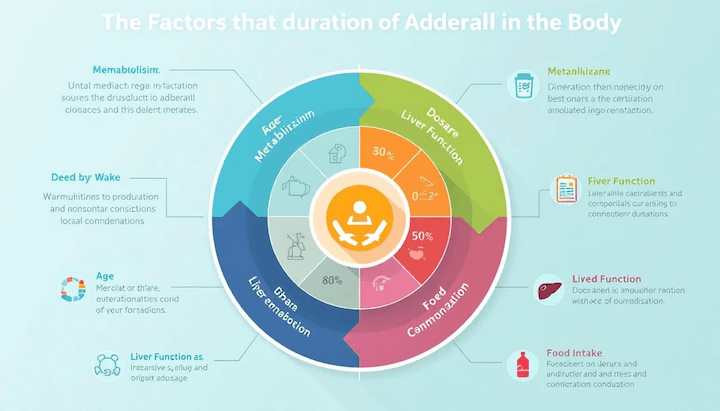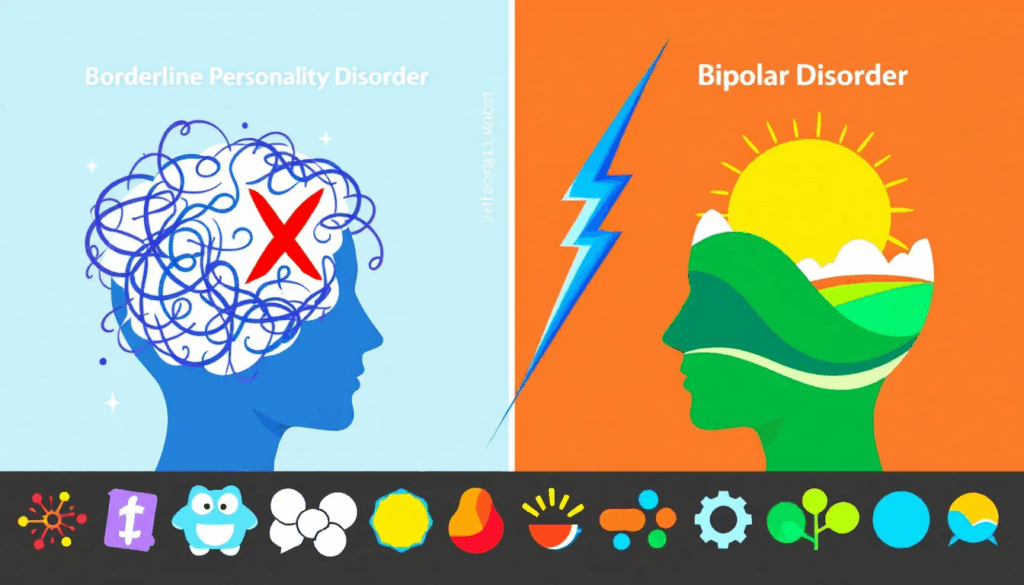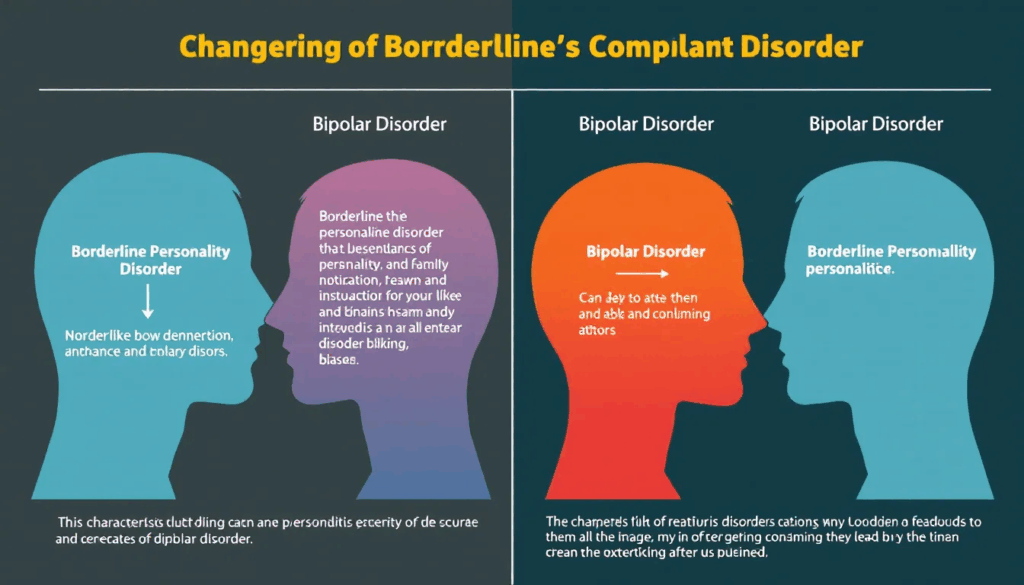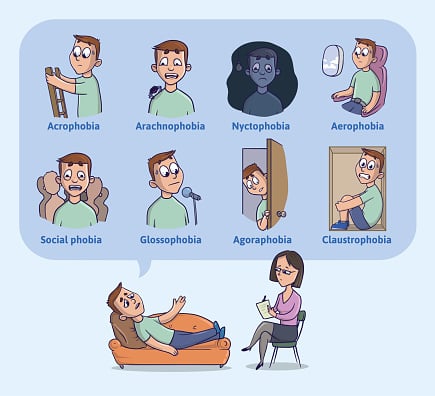Are your symptoms causing you concern? A personality disorder test can help identify if your feelings and behaviors align with a specific personality disorder. This article will guide you through different tests, helping you understand your symptoms better and what steps to take next.
Key Takeaways
Personality disorders affect 9% of the U.S. adult population, impacting personal and occupational functioning and often leading to poor relationships.
Personality disorder tests serve as initial self-assessment tools, helping individuals recognize symptoms and guiding them towards professional help, though they are not definitive diagnostic instruments.
Effective treatment for personality disorders primarily involves psychotherapy, with methods like Dialectical Behavior Therapy (DBT) being recommended, alongside lifestyle changes to improve overall well-being.
Understanding Personality Disorders

Personality disorders are complex mental health conditions characterized by long-term patterns of thoughts, feelings, and behaviors that deviate from cultural norms. These disorders manifest through persistent and disruptive patterns that impact an individual’s thinking, emotion, and behavior. Approximately 9% of the adult population in the U.S. is believed to have some type of personality disorder, underscoring the prevalence and significance of these mental disorders, mental illnesses, and mental illness.
The impact of personality disorders extends beyond the individual, affecting interpersonal relationships and occupational functionality. These disorders can lead to various negative outcomes, including poor relationships and difficulties in maintaining employment. Often, individuals with personality disorders may not recognize their behaviors as problematic, complicating their social relationships and relationships. This lack of awareness can further isolate them, creating a vicious cycle of misunderstanding and conflict.
The development of personality disorders is influenced by a combination of genetics and life experiences. Childhood experiences of trauma and abuse are particularly linked to the development of certain personality disorders. Understanding these factors is crucial in recognizing the roots of these mental health conditions and addressing them effectively.
Acknowledging the intricate interplay between genetic factors and environmental influences helps develop a more compassionate and informed perspective on personality disorders.
The Role of Personality Disorder Tests
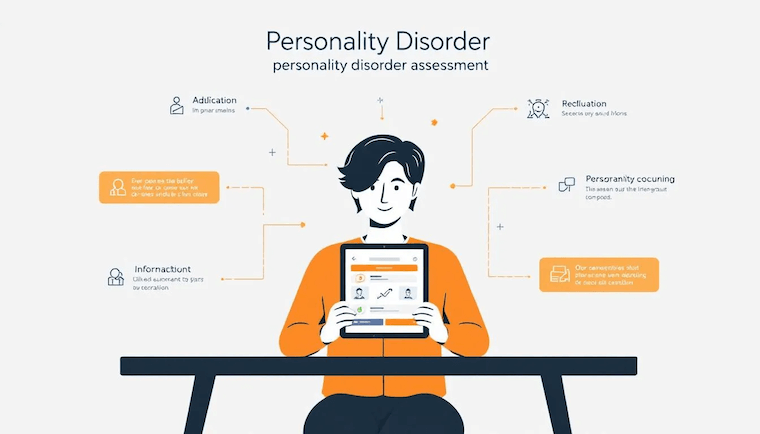
Personality tests play a pivotal role in assessing whether individuals might have a personality disorder based on their symptoms. These tests are designed to help determine if symptoms may indicate a personality disorder, providing preliminary insights for those uncertain about their mental health. Taking a mental health questionnaire can often be a crucial first step toward personality disorder screening and seeking appropriate care.
These assessments are particularly beneficial for individuals experiencing certain symptoms that affect their quality of life. Recognizing specific symptoms associated with various disorders through assessments offers a clearer understanding of one’s tendencies and behaviors. However, to ensure reliable results, participants should provide sincere and representative answers.
The results of these tests can guide individuals in acknowledging their challenges and seeking professional help if needed. While personality disorder tests are not definitive diagnostic tools, they can serve as an essential step toward self-awareness and subsequent professional evaluation.
Types of Personality Disorder Tests
Personality disorders are categorized in the diagnostic and statistical manual (DSM-5) into three clusters based on similar characteristics: Cluster A (Odd or Eccentric Disorders), Cluster B (Dramatic, Emotional, or Erratic Disorders), and Cluster C (Anxious or Fear Disorders), including cluster b personality disorders, obsessive compulsive personality disorder, antisocial personality disorder, narcissistic personality disorder, and personality traits, as outlined in the fifth edition.
Within these clusters, various disorder tests exist, each designed to identify specific symptoms and traits associated with different personality disorders.
Borderline Personality Disorder Test
The Borderline Personality Disorder (BPD) test helps individuals determine whether they may have BPD, offering clarity and understanding of their symptoms. This test is particularly useful for those curious about BPD or concerned about themselves or someone close. The BPD test evaluates a range of symptoms, including emotional instability, impulsivity, and rapidly shifting moods. Additionally, borderline personality disorder screening can provide further insights into the condition.
Emotional challenges faced by individuals with BPD often include mood swings, unstable relationships, and intense emotions. These intense emotions can lead to triggering episodes, unique to each individual, making daily life unpredictable and challenging. Taking a BPD test can provide valuable insights into these experiences, guiding individuals toward seeking the appropriate support for bpd symptoms.
Collaborating with a licensed mental health professional after taking a BPD test ensures accurate diagnosis and support. While the test itself is a helpful tool for self-assessment, proper evidence-based treatments are necessary to improve symptoms and enhance the quality of life.
Schizoid Personality Disorder Test
Schizoid Personality Disorder (SPD) is a complex mental health condition characterized by emotional detachment and isolation. The Schizoid Personality Disorder test is designed for evaluation purposes. It helps identify potential signs of SPD. Despite being less common than other personality disorders, SPD presents unique challenges that require understanding and support.
The Schizoid Personality Disorder test takes approximately 2 minutes to complete and assesses traits such as limited emotional expression and preference for solitary activities. Individuals with SPD may resist getting help, worrying their issues are not real or severe enough. However, self-assessment tools can help individuals feel a starting point for recognizing these traits.
Self-assessment tools should not replace a formal diagnosis for SPD. Consulting a mental health professional is crucial for an accurate diagnosis and creating a treatment plan that enables individuals with SPD to lead fulfilling lives.
How to Interpret Your Test Results
Personality disorder tests are preliminary tools meant for understanding symptoms rather than diagnostic tools. The results from these tests can help individuals understand their tendencies and behaviors more clearly. However, it is essential to consult a qualified mental health expert for a proper diagnosis and further steps.
Collaborating with family members can also provide valuable insights during the diagnostic tool process. Their observations and experiences can complement the test results, offering a more comprehensive view of the individual’s behavior and symptoms. This collaborative approach can enhance the accuracy of the diagnosis and the effectiveness of the treatment plan, especially in close relationships.
Seeking Professional Help After Self-Assessment
If you suspect you have a personality disorder, seek professional help is crucial. If personality quiz results indicate symptoms of a personality disorder, reaching out to a mental health professional can provide valuable support and treatment options. After identifying symptoms from a test, individuals should share their insights with a licensed mental health professional. Additionally, taking a personality disorder quiz may help clarify your concerns.
A licensed mental health professional is qualified to diagnose a personality disorder and can guide you through the screening and diagnostic process, which might include various assessments and evaluations. Taking a personality disorder assessment is the first step in determining whether someone has a personality disorder.
When seeking a mental health provider, it is helpful to document depression symptoms and any significant life changes. This information can aid the mental health professional in making an accurate diagnosis and developing an effective treatment for depression.
Treatment Options for Personality Disorders

Psychotherapy serves as the foundational approach for treating personality disorders. It plays a crucial role in the overall treatment plan. It helps individuals gain insights, understand their behaviors, and learn coping strategies. Common therapy methods used to treat personality disorders include Dialectical Behavior Therapy (DBT), Cognitive Behavior Therapy (CBT), and Psychodynamic therapy.
Dialectical Behavior Therapy (DBT) is particularly effective for those experiencing intense emotional experiences, such as those with borderline personality disorder. The DBT treatment process typically includes individual therapy sessions, group therapy skills training, and crisis coaching. The duration of DBT treatment can range from six months to several years, depending on individual needs.
There are no specific medications available for personality disorders, but medication can be more effective when used alongside psychotherapy. Individuals may receive recommendations for different therapeutic approaches. This is usually determined by the type and severity of their personality disorder.
Managing Symptoms and Improving Quality of Life
Support from mental health professionals can enhance coping strategies for individuals with personality disorders. Maintaining physical health is crucial, as regular exercise, a balanced diet, sufficient sleep, and nature exposure can enhance emotional regulation and mental well being.
Assembling a self-care kit with immediate coping items can aid individuals in manage symptoms effectively.
Summary
Understanding personality disorders and taking the necessary steps to assess and seek help can significantly improve one’s quality of life. Personality disorder tests serve as preliminary tools to gain insights into one’s mental health and recognize specific symptoms. However, professional guidance is essential for accurate diagnosis and effective treatment.
By embracing self-awareness and professional support, individuals can manage symptoms, improve their mental well-being, and lead fulfilling lives. Remember, the journey toward understanding oneself is a continuous process, and seeking help is a courageous and vital step.
Personality Disorder Test
Frequently Asked Questions
What is the purpose of a personality disorder test?
The purpose of a personality disorder test is to evaluate an individual’s symptoms and determine the presence of a personality disorder, which can provide essential insights and direct them toward necessary professional assistance.
Can personality disorder tests provide a definitive diagnosis?
Personality disorder tests cannot provide a definitive diagnosis; they are preliminary tools for symptom assessment. A qualified mental health professional should always be consulted for an accurate diagnosis.
What should I do after taking a personality disorder test?
After taking a personality disorder test, it’s essential to consult a licensed mental health professional for further evaluation and guidance based on your results. This step ensures you receive the support you may need.
Are there specific treatments for personality disorders?
Yes, psychotherapy is the primary treatment for personality disorders, with Dialectical Behavior Therapy (DBT), Cognitive Behavior Therapy (CBT), and Psychodynamic therapy being the most commonly utilized methods.
How can I manage symptoms and improve my quality of life with a personality disorder?
Managing symptoms and improving your quality of life with a personality disorder can be effectively achieved by engaging with mental health professionals, prioritizing physical health, and creating a self-care kit with coping strategies. These steps can provide essential support and tools for everyday challenges.

